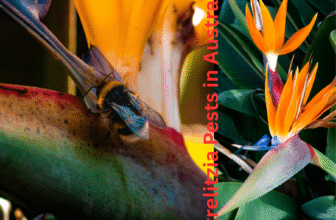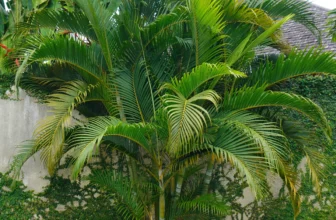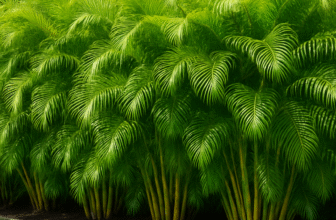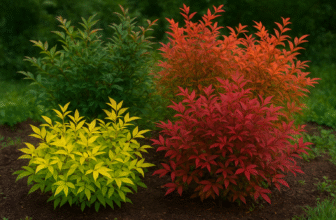Best Fertiliser for Nandina Domestica: this plant also known as heavenly bamboo, is a popular ornamental shrub in Australian gardens. Its year-round colour shifts — from green to fiery reds and oranges — make it ideal for borders, hedges, and pots.
To keep Nandina looking lush, colourful, and healthy, you need to feed it correctly. This guide covers:
The best fertiliser for Nandina in Australia
- When and how often to apply
- Pros and cons of fertiliser options
- Feeding tips for pots vs. garden beds
- Mistakes to avoid
- FAQs answered by Australian gardening experts
- References from trusted sources, including CSIRO and DPI
The best fertiliser for Nandina Domestica are usually low in phosphorus and safe for natives.
Why Fertilising Nandina Matters
Gardeners often ask about the best fertiliser for Nandina Domestica to boost colour and growth,it is hardy but performs best when fed. Proper fertilisation helps:
- Intensify leaf colour through the seasons
- Encourage dense hedge growth
- Support flowering and berry production
- Strengthen resistance against pests and diseases
If your Nandina shows pale leaves, slow growth, or dull color, it’s usually a sign that it needs fertilizer.What Fertiliser Does Nandina Need?
Nandina thrives on:
What Kind of Fertiliser Does Nandina Need?
Nandina grows best with fertiliser that are low in phosphorus and balanced with nitrogen for growth, potassium for colour, and trace elements for overall health. A mix of slow-release feeding and an occasional liquid boost keeps it looking vibrant year-round.
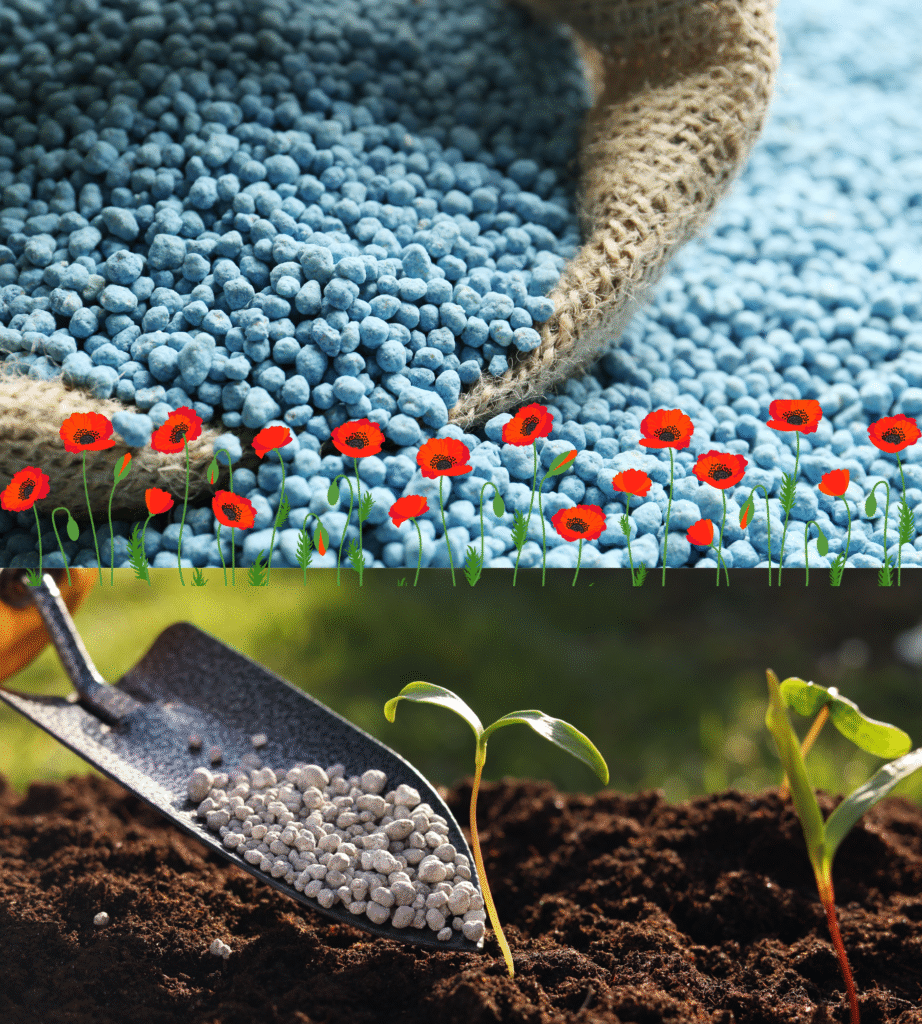
Best Fertiliser for Nandina in Australia (2025)
Controlled-Release Fertilisers
Products like Osmocote Native Controlled Release feed steadily for three to six months. They’re safe for natives and ideal for pots or gardens, though slightly costlier than other options.
Liquid Seaweed Tonics
A liquid feed such as Seasol Seaweed Concentrate gives fast recovery from heat, drought, or transplant stress. It works quickly but needs reapplying every few weeks.
Organic Fertilisers – Soil Health & Long-Term Growth
- Example: Yates Dynamic Lifter Organic Plant Food
- Improves soil structure while feeding the plant
- Releases nutrients slowly
Pros: Eco-friendly, improves soil, safe once watered in
Cons: Slower visible impact, strong smell
Choosing the best fertiliser for Nandina Domestica keeps the shrub healthy year-round.
Best Fertilisers for Nandina in Australia (2025)
Here’s a breakdown of top fertilisers that work well for Nandina domestica:
| Fertiliser Type | Example Products | Pros | Cons |
|---|---|---|---|
| Slow-Release Native Fertiliser | Osmocote Native Controlled Release | Gentle on roots, long-lasting, tailored for Australian natives | More expensive upfront |
| All-Purpose Fertiliser | Seasol Complete Garden Health | Easy to find, boosts overall plant health | Not specific for colour boost |
| Liquid Fertiliser (Seaweed Tonic) | Seasol Seaweed Solution | Promotes root growth, stress recovery | Needs regular application |
| Granular Fertiliser | Yates Dynamic Lifter | Improves soil structure, organic | Strong smell, slower acting |
Government & Trusted References
- NSW Department of Primary Industries – Fertiliser Use in Gardens
- ABC Gardening Australia – Fertilising Natives
- Agriculture Victoria – Fertiliser Guidelines
Seasonal Fertilising Guide
Season What to Do
Spring: Use controlled-release fertiliser. Apply liquid seaweed fortnightly.
Summer: Top up with liquid feeds monthly. Water deeply in hot weather.
Autumn: Apply organic fertilizer to maintain color.
Winter: Minimal feeding; use seaweed tonic only if stressed.
Pots vs. Garden Beds
- Pots: Nutrients leach faster. Use a controlled-release fertiliser designed for pots, and apply liquid feeds monthly.
- Garden Beds: Apply slow-release fertilizer 2–3 times a year and improve the soil with organic fertilizer.
Signs Your Nandina Needs Fertiliser
- Pale or yellowing leaves
- Lack of seasonal colour
- Stunted growth
- No flowers or berries
To achieve rich colour, many Australians rely on the best fertiliser for Nandina Domestica in spring and summer.
Common Mistakes to Avoid
- Over-fertilising: Causes root burn and excessive leafy growth.
- Using lawn fertiliser: Too high in phosphorus, unsafe for Nandina.
- Applying in the hot sun: Always water before and after feeding.
Where to Buy Fertilisers in Australia
- Osmocote Native Controlled Release – Bunnings
- Seasol Seaweed Solution – Bunnings
- Yates Dynamic Lifter – Bunnings
References (E-A-T Support)
- CSIRO Soil Fertility Report, 2024 – Nutrient requirements for Australian soils
- NSW DPI Fertiliser Guidelines – Low-phosphorus fertilisers for natives
- ABC Gardening Australia – Plant care advice for Aussie gardens
- Australian Native Plants Society (ANPSA) – Fertiliser safety for natives.
Final Buying Guide: Best Fertilisers for Nandina Domestica in 2025
If you want:
- Low-maintenance feeding → Osmocote Native Controlled Release
- Quick colour boost → Seasol Seaweed Solution
- Organic soil health → Yates Dynamic Lifter
FAQs – Nandina Fertiliser in Australia (2025)
What is the best fertiliser for Nandina?
A controlled-release fertiliser like Osmocote Native is best, with liquid seaweed for extra health and organic fertiliser for soil.
How often should I fertilise Nandina?
Twice yearly with slow-release fertiliser (spring and autumn), plus monthly liquid feeds in summer.
Can I use lawn fertiliser on Nandina?
No, lawn fertiliser is usually too strong and not suitable for Nandina.
What’s best for Nandina in pots?
Use controlled-release fertiliser for pots and add a liquid seaweed feed once or twice a month.
How long does fertiliser last?
Slow-release fertilisers usually last 3–6 months, depending on brand and weather.
Final Tips for Australian Gardeners
- Choose a low-phosphorus fertiliser to protect Nandina roots.
- Stick to a seasonal schedule for the best colour year-round.
- Combine fertiliser types for balanced growth: controlled-release, liquid seaweed, and organic.
- Always water the fertiliser well to avoid burning.


